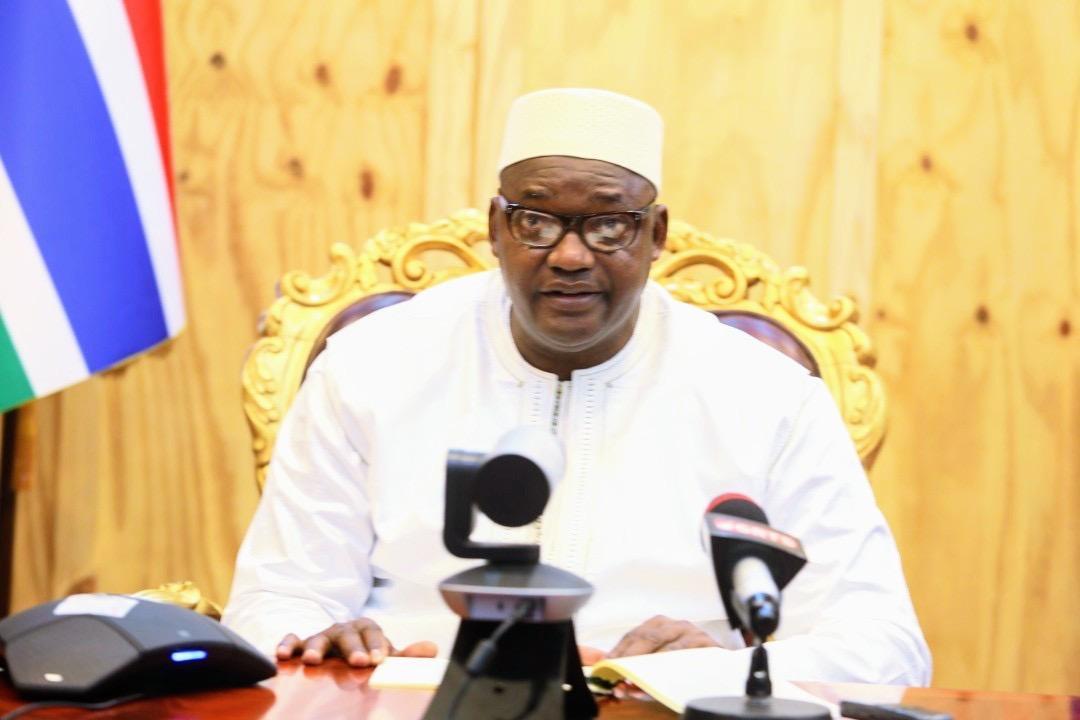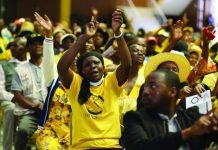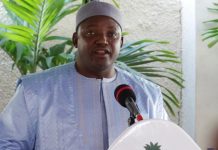
Africa-Press – Gambia. In the ever-evolving journey of The Gambia’s democracy, development, and national identity, we’ve had the privilege of witnessing three republics under three different leaders. Sir Dawda Kairaba Jawara gave us independence and nurtured the foundations of a democratic system. Yahya Jammeh, for all his controversies, brought infrastructural expansion but ruled with an iron fist. Today, President Adama Barrow stands as a product of a people’s choice for change — and despite the noise, the bias, and the politics, one thing is becoming undeniably clear: Barrow has done more for The Gambia than Jawara and Jammeh combined.
Let’s put aside party lines and political emotions. Let’s look at the facts — measurable development, social impact, regional leadership, and governance reforms. When weighed objectively, Barrow’s presidency reflects a level of transformation unmatched in the post-independence history of our country.
Infrastructure: Building the New Gambia from the ground up
No president in Gambian history has undertaken more road construction and infrastructural development than Adama Barrow. From the North Bank to the Upper River Region, and from rural Gambia to the capital, road networks that were once impassable or non-existent have now been tarred, widened, and connected to boost trade, healthcare access, and national integration.
Projects like the OIC roads, the Jahang-Basse highway, the Basse-Fatoto-Koina roads, and massive urban road expansions have changed the face of transportation across the country. His administration has also modernised key public facilities, including markets, bridges, ports, and administrative buildings. Unlike previous governments that focused mainly on Banjul and Kombo, Barrow’s development drive has reached every corner of the country.
This is a president who understands that infrastructure is not just about roads; it’s about access to opportunity.
Electricity and water expansion: Lighting up the nation
Under Barrow, rural electrification has reached unprecedented levels. Regions that never had electricity since independence are now connected to the national grid. Water supply has also improved significantly in both urban and rural communities. Through partnerships with development partners like the World Bank, EU, and Saudi Arabia, his administration has launched ambitious programmes to provide clean water, reduce electricity tariffs, and make energy more accessible and sustainable.
Compare this with the Jammeh era, where electricity blackouts were the norm even in the capital. Or the Jawara era, when electricity was a luxury of the elite. Barrow’s administration is the first to democratise access to energy.
Education and Health: Laying foundations for future generations
In education, Barrow’s government has expanded school infrastructure and increased teacher recruitment and training. Tertiary institutions like the University of The Gambia and new TVET (Technical and Vocational Education and Training) centres are now more resourced, with a growing emphasis on practical skills to reduce unemployment.
In the health sector, more hospitals have been built and equipped, and training programmes for nurses and doctors have been scaled up. The Basse Regional Hospital, upgraded health posts across regions, and consistent provision of ambulances and medical equipment reflect Barrow’s focus on health access — a far cry from the struggling facilities under previous administrations.
Good governance and rule of law: A democratic rebirth
Adama Barrow’s greatest achievement may not lie in brick and mortar but in the restoration of democracy and the rule of law. Under his leadership:
· There are no political prisoners.
· The media operates freely, with over 35 new media houses established since 2017.
· Civil society organisations are vibrant and active.
· Peaceful protests, political pluralism, and press freedom have returned to the national stage.
These are liberties Gambians could only dream of under Jammeh, and which were underdeveloped during Jawara’s long single-party dominance. Barrow allowed the truth commission (TRRC) to proceed independently and is now overseeing transitional justice processes to heal the nation.
Let’s remember — it was under Barrow’s leadership that the 22-year dictatorship ended, not with war, not with bloodshed, but through peaceful democratic transition.
Economic management and investment promotion
Despite the global economic shocks from COVID-19 and the Russia-Ukraine war, The Gambia under Barrow has maintained relative economic stability. His government has prioritised youth employment, skills development, and agricultural revitalisation. Programmes like NAFA Quick and the Youth Empowerment Project (YEP) have created thousands of jobs and entrepreneurship opportunities.
The Gambia is now attracting more foreign direct investment, thanks to Barrow’s reforms and increased investor confidence.
Institutions like The Gambia Investment and Export Promotion Agency (GIEPA) are being empowered to facilitate trade and investment more efficiently.
Diplomatic presence and regional integration
Barrow has positioned The Gambia as a respectable and cooperative member of the international community. Our diplomatic missions are being revived, bilateral relations are flourishing, and the country has taken a more proactive role in regional affairs through ECOWAS and the African Union.
Gone are the days when The Gambia was isolated due to reckless foreign policy decisions. Barrow has returned dignity to Gambian diplomacy, rebuilding bridges that were burnt under Jammeh’s erratic leadership.
Barrow vs Jammeh vs Jawara: The Honest comparison
· Jawara gave us independence and maintained peace — but for over 30 years, development was slow and uneven.
· Jammeh ruled with fear, while building infrastructure and schools — but at the cost of human rights, economic mismanagement, and national trauma.
· Barrow has built more infrastructure than the two combined, restored democracy, reconnected The Gambia to the world, and empowered the people through inclusion, freedom, and economic opportunity.
This is not to say Barrow is perfect — no leader is. There is room for improvement, especially in the fight against corruption, youth unemployment, and implementation delays. But let us be fair and honest: his achievements far outweigh those of his predecessors, both in scale and substance.
Conclusion: Give credit where it’s due
History will judge leaders not by how loud their critics were, but by the legacy they leave behind. President Adama Barrow’s legacy is one of transformation — a peaceful Gambia, an expanding economy, better infrastructure, democratic freedoms, and a return to global respectability.
As Gambians, we owe it to ourselves and future generations to give credit where it’s due. Let us put politics aside and acknowledge that under President Barrow, The Gambia is finally moving in the right direction.
For More News And Analysis About Gambia Follow Africa-Press





